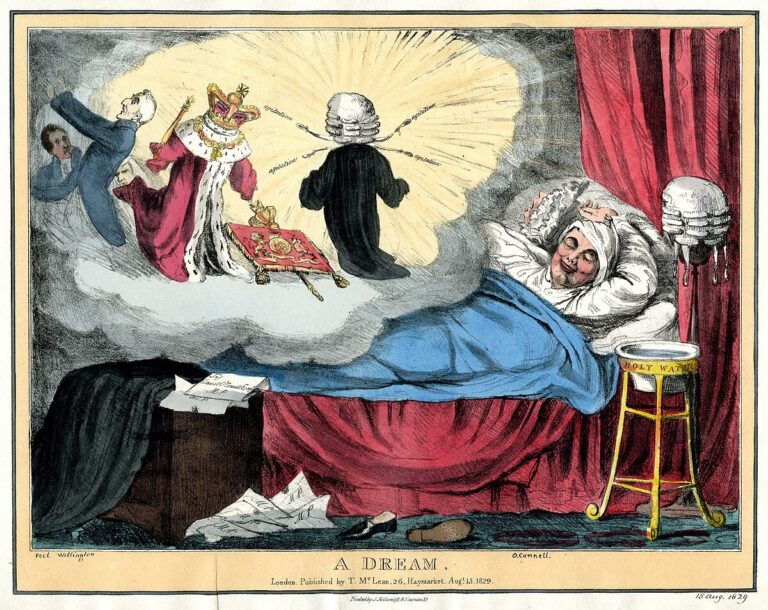Common Issues in Men’s Sexual Health and How to Address Them

Understanding Male Sexual Health
Sexual health is a critical aspect of a man’s overall health and well-being, often directly linked to their quality of life and self-esteem. Many tend to associate sexual health solely with physical functioning; however, it’s a much broader concept. It encapsulates not only sexual health problems like erectile dysfunction or low testosterone levels, but also emotional, psychological, and social issues related to sexuality. For example, stress, anxiety, depression, body image concerns, or relational troubles can significantly affect a man’s sexual health. Hence, it is of utmost importance to cultivate a comprehensive understanding of male sexual health for effective management and better overall wellness.

A healthy sexual life equates to a healthier and happier life. In many cases, sexual problems are symptomatic of other health conditions. For instance, erectile dysfunction could be an indicator of underlying heart disease or diabetes. Similarly, a sudden dip in sexual desire might be related to hormonal imbalances, or stress and mental health issues. Therefore, regular health check-ups, open communication with healthcare professionals, and self-awareness are essential to identify and address these problems early. Remember, acknowledging and understanding the issue is the first step to finding an effective solution.
Recognizing the Importance of Regular Check-Ups
Regular health check-ups are fundamentally instrumental in maintaining optimum male sexual health. These medical evaluations act as a preventive measure, helping to detect potential health issues before they escalate into major problems. Routine blood tests, PSA screenings, penile doppler sonography, hormone tests, physical exams are some of the check-ups recommended for men to maintain their sexual health. These tests can help in the early detection of conditions such as erectile dysfunction, premature ejaculation, decreased libido, or prostate issues.
Embracing regular health check-ups can lead to early treatment, which significantly increases the effectiveness and success of therapeutic measures. It’s quite like maintaining a vehicle—it runs smoother and longer with regular tune-ups. A considerable share of male sexual health problems, too, function on this principle. Allowing a doctor to monitor health regularly can lead to recognizing diseases early before it’s too late. Not only do regular check-ups provide a health update, but they also offer an opportunity to build a relationship with the healthcare provider, facilitating easier communication of even the most intimate health concerns.
The Impact of Age on Male Sexual Health
Male sexual health is a multifaceted subject that changes over time, and it’s important to shed light on the influence of age. As men get older, gradual shifts in sexual health can occur. These changes encompass a broad range, from a decline in sexual desire to issues like erectile dysfunction. While these evolutions are a natural part of the aging process, understanding these alterations can help men to accomplish a more satisfactory sexual life as they age. Incidentally, multiple studies report that Erectile Dysfunction (ED) prevalence amounts to almost 50% in men over 50, making it an integral part of the conversation.
Various elements cause these alterations in men’s sexual health with increasing age. Natural reduction of testosterone levels is one such factor, which can lead to lower sex drive, mood changes, and concentration difficulties. Erectile dysfunction, which can be attributed to conditions like heart disease or diabetes, becomes increasingly common. Lifestyle choices also play a substantial role in enhancing or undermining male sexual health. Physical fitness, diet, mental health, and a balanced lifestyle significantly boost sexual health irrespective of age. Healthy practices such as regular exercise, balanced nutrition and regular check-ups are crucial for maintaining sexual wellness as men age.
Erectile Dysfunction: Causes and Solutions
Erectile Dysfunction (ED), often a troubling source of emotional distress for many men, is a health condition typically characterized by the consistent inability to achieve or maintain an erection sufficient for engaging in intimate activities. Based on a study published in The American Journal of Medicine, approximately 18 million men in the U.S alone are affected by ED. This sexual health issue is usually linked to several physiological and psychological factors. Causes primarily range from cardiovascular diseases, diabetes and obesity, to high cholesterol levels or high blood pressure. Additionally, psychological influences such as stress, depression, anxiety or relationship conflicts also play a crucial role in developing ED.
Fortunately, numerous effective solutions are available for addressing this pervasive health concern. Prescription medications such as sildenafil (Viagra), tadalafil (Cialis), and vardenafil (Levitra) have been quite successful in treating ED. Moreover, lifestyle modifications that include regular physical exercise, a balanced diet, and refraining from excessive alcohol consumption or tobacco use can significantly improve sexual function. Concurrently, psychological therapies or counseling can also contribute to resolving any underlying emotional triggers. However, it is critical to remember that a proper medical consultation is indispensable before embarking on any treatment path, in order to safely navigate potential side effects or interactions.
Premature Ejaculation: Understanding and Overcoming
Premature ejaculation (PE) is a sexual health issue that many men grapple with, and understanding it is the first step towards overcoming it. It is characterized as an uncontrolled ejaculation either before or soon after sexual activity commences, resulting in unsatisfactory sexual experiences for one or both partners. According to the Mayo Clinic, PE can occur with minimal sexual stimulation and typically before the person wishes. Though it can be a source of distress and frustration, it’s important to remember that PE is a common issue. Studies suggest that one in three men may experience this condition at some point in their lives, indicating its prevalence in the global male population.
Overcoming premature ejaculation often involves both psychological and physical efforts. Various treatment methods are recommended by health professionals, which often include behavioral techniques, counseling, or medication. Behavioral techniques, such as the “start-stop” method or the “squeeze” method, can help men gain more control over their ejaculation. Counseling or therapy can be beneficial in addressing underlying psychological issues that may contribute to PE, such as anxiety or depression. Furthermore, certain medications can help delay ejaculation. These treatments are often most effective when used in combination, tailored to an individual’s specific needs. Remember, professional help is available and seeking the guidance of a healthcare provider can significantly aid in managing this condition effectively.
Low Testosterone: Symptoms and Treatment Options
Testosterone is an influential hormone in the human body, particularly in men, where it’s responsible for regulating a range of physiological functions, including muscle mass maintenance, bone strength, and sexual drive. Low testosterone, often recognized as hypogonadism, manifests itself through a cluster of symptoms that can deeply impact a man’s overall well-being and life quality. Typical symptoms include fatigue, irritability, depression, reduction in muscle mass, softening of the bones, increased body fat, and diminished sexual drive or dysfunction. Lack of focus and sleep disturbances may also flag low testosterone levels, making it crucial for men experiencing these symptoms to seek medical help.

When it comes to treating low testosterone, numerous “next-step” options are available, fundamentally based on the root cause of the condition. Synthetic testosterone therapy has been proven as an effective treatment in many cases, offered in many forms such as injections, patches, gels, and tablets. In addition to hormone replacement, lifestyle changes, such as weight loss, improved diet, and an increase in physical activity, can make a significant impact. For those with clinical depression or other mental health issues leading to lowered testosterone, working closely with a mental health professional could be the best course. As these options illustrate, low testosterone is treatable, turning negative symptoms around and improving quality of life. That said, it is always advised to consult with a healthcare professional for an individual diagnosis and treatment plan.
Loss of Libido: Reasons and Remedies
Loss of libido, or decreased sexual drive, is a concern that many men face, often leading to a significant amount of distress. A myriad of reasons contribute to this issue, including both physical and psychological factors. Physical elements such as low testosterone levels, certain chronic diseases, or even specific medications can directly impact a man’s sexual interest. Furthermore, illnesses not directly related to sexual function like diabetes, obesity or heart disease can indirectly lower libido by affecting self-image or physical ability.
The good news is that various remedies exist to address this concern. Communication is the cornerstone of resolving these issues. Open and honest conversations with partners often pave the way to mutual understanding and compromise, reducing the associated anxiety or performance pressure. For health-related causes, treatment of the underlying physical condition, testosterone replacement, or medication adjustment may be effective. Most importantly, guidance from professional healthcare providers and mental health specialists can provide personalized approaches to restore sexual drive.
Prostate Health: Issues and Preventive Measures
The prostate, a small gland located under the bladder, plays a significant role in male reproductive health. It produces seminal fluid, which aids in the nourishment and transportation of sperm. Prostate-related issues are often directly tied to age. It is a fact that the risk of developing prostate conditions, such as benign prostatic hyperplasia (BPH) or prostate cancer, increases as men age. Notably, prostate cancer is the second most common cancer among men in the U.S., with nearly one in nine men being diagnosed during his lifetime, according to the American Cancer Society.
Preventive measures, however, can aid in maintaining prostate health. Regular medical check-ups, including a digital rectal exam (DRE) and prostate-specific antigen (PSA) test, can help in early detection of potential prostate issues. Incorporating a balanced diet into your lifestyle can also be beneficial. Studies suggest that a diet rich in fruits, vegetables, and healthy fats may help protect the prostate. Furthermore, regular physical exercise and maintaining a healthy weight are essential towards enhancing overall health and by extension, prostate health. It’s essential to understand and not overlook the prominence of prostate health in a man’s life. By raising awareness and promoting early detection strategies, we can help men lead a healthier and possibly a longer life.
Sexually Transmitted Infections: Prevention and Treatment
Sexually Transmitted Infections (STIs), also known as Sexually Transmitted Diseases (STDs), are infections that spread primarily through person-to-person sexual contact. According to the Centers for Disease Control and Prevention (CDC), there are approximately 20 million new STIs each year in the United States, and half of these are among individuals aged 15-24. STIs can have severe implications if untreated, causing problems such as infertility, certain types of cancer, organ damage, and even death in some cases. Many STIs are asymptomatic, which means they display no apparent symptoms, therefore regular checks are advised irrespective of any noticeable issue. Thus, awareness and early detection play a pivotal role in managing these infections.
Preventing STIs is a shared responsibility and requires concerted efforts from individuals, healthcare providers, and communities. Abstinence from sex is the most reliable way to protect against STIs, but let’s be realistic, it’s not one-size-fits-all advice. Therefore, other prevention strategies include opting for monogamous relationships with uninfected partners, using condoms correctly and consistently, and getting vaccinated for preventable infections like HPV and Hepatitis B. Regular screening/testing forms the cornerstone in controlling the spread of STIs and ensuring prompt treatment if infected. For instance, the CDC has laid out specific guidelines recommending yearly screenings for sexually active women under 25 and individuals with high-risk sexual behaviors. Lastly, individuals diagnosed with a STI should inform their sexual partners so they could be examined and treated.
The Role of Lifestyle Choices on Sexual Health
Certain lifestyle choices profoundly impact sexual health in males. Choices such as smoking and alcohol intake, obesity, lack of exercise, and an unhealthy diet can significantly contribute to sexual health problems. For instance, smoking can compromise blood flow in the body, leading to conditions like erectile dysfunction. Obesity, on the other hand, can lower testosterone levels, reducing sexual desire, and performance. According to a study in the Journal of Sexual Medicine, men who eat a diet rich in fruits, vegetables, and whole grains, and low in processed foods have better sexual health.
Engaging in regular physical activity plays a critical role in maintaining good sexual health. Exercise not only boosts self-confidence and body image but also improves blood circulation, an important aspect of sexual performance. It has been observed, according to Journal of the British Association of Urological Surgeons, that men who engage in frequent physical activity have a 30% lower risk of erectile dysfunction. Additionally, stress management is of utmost importance. Chronic stress can impact hormonal balance and potentially lead to conditions like erectile dysfunction and premature ejaculation. It’s essential to adopt stress management techniques such as yoga, meditation, and mindfulness to maintain optimal sexual health.
Importance of Mental Health in Maintaining Sexual Wellness
The role of robust mental health in fostering sexual wellness in men is an area that is often overlooked, yet it is crucial. Mental health conditions such as depression, anxiety, and stress can significantly impact a man’s sexual health and performance. For instance, depression can lead to sexual dysfunctions like erectile dysfunction and premature ejaculation due to changes in neurotransmitter chemical activity or alterations in hormone levels. Chronic stress, on the other hand, interferes with both the body’s hormone levels and the nervous system – two systems that play a fundamental role in sexual response.
Self-esteem, another mental health aspect, plays a vital role in sexual wellness. A positive self-image can greatly enhance a man’s sexual performance, while low self-esteem or body image issues can lead to sexual difficulties, including lack of sexual interest or performance anxiety. Furthermore, mental health complications can also hinder the ability to form and maintain intimate relationships, further affecting sexual health. Therefore, addressing and treating underlying mental health issues can be an essential step in enhancing male sexual wellness. In this context, mental health professionals and sex therapists play a significant role. Incorporating regular mental health check-ups can facilitate early identification of potential issues thus allowing for timely intervention.
Exercise and Male Sexual Health: A Close Connection
Consistent physical activity is widely acknowledged to have an array of health benefits. It can ward off chronic diseases, maintain a healthy weight, and boost mood. Recent medical research indicates it also plays a pivotal role in promoting healthy sexual function in men. Regular exercise can help maintain strong sexual response through enhanced blood flow, improved stress management, and balanced hormone levels, among other factors.
It’s not just about aerobic exercise though, strength training also plays a significant role. A study by the New England Research Institute showed that men who included regular strength training in their exercise routine had a 30% lower risk of experiencing erectile dysfunction than those who didn’t. This is believed to be due to strength training helping to increase testosterone levels, a vital hormone when it comes to male sexual health. The manner in which exercise impacts sexual health is multifaceted and further underscores the importance of a balanced fitness routine.
Diet and Nutrition: Influence on Male Sexual Health
The influence of diet and nutrition on male sexual health can often be overlooked, but it plays a pivotal role in maintaining one’s overall well-being. Studies suggest that certain nutrient deficiencies like zinc, vitamin D, and folic acid may lead to impaired sexual functioning. In particular, zinc is essential for testosterone production, a crucial hormone for male sexual health, as it can influence both libido and erectile function. Meanwhile, folic acid aids in the production of healthy red blood cells and a deficiency may lead to problems with circulation, subsequently affecting erectile function.
Balanced nutrition, comprising a variety of fruits, vegetables, lean proteins, and whole grains, ensures sufficient intake of these essential nutrients. Regular consumption of foods rich in Omega-3 fatty acids, like fatty fish, walnuts, and chia seeds, can also positively impact male sexual health by improving circulation and heart health. However, restricting processed foods, excessive alcohol, and high-fat meals is equally crucial, as they can lead to obesity, which adversely affects testosterone levels, and may contribute to conditions like erectile dysfunction and reduced libido. Through careful consideration of dietary habits, many aspects of male sexual health can be improved, underpinning the importance of diet and nutrition in overall sexual wellness.
Managing Stress for Better Sexual Health
Stress undeniably affects many aspects of health, and sexual health is no exception. Its impact ranges from reduced libido to heightened issues like erectile dysfunction, directly impacting a man’s overall sexual satisfaction. Some manifestations of stress include mood swings, headaches, weakened immune system, and reduced testosterone levels, which subsequently influence male sexual performance. As reported by Harvard Health Publishing, stress, by stimulating the body’s fight or flight response, can also tighten the arteries, impeding blood flow and precipitating sexual problems. Thus, managing stress levels is crucial to maintaining and enhancing male sexual health.
Establishing regular practices to alleviate stress can significantly improve male sexual health. Regular exercise, for instance, boosts endorphin production which elevates mood and acts as a natural remedy for stress. Data from Mayo Clinic also suggests that exercises, particularly aerobic ones, can help cure erectile dysfunction. A balanced diet rich in vitamin B complex, known for reducing stress levels, also contributes to improved sexual wellness. Besides physical health, mental well-being is vital too; mindfulness and stress-management therapies, such as yoga and meditation, have been linked to improved sexual performance. Regular health check-ups can also assist in early detection and treatment of stress-induced sexual health issues.
The Role of Communication and Counseling in Enhancing Sexual Health

In this age of instant information, men’s sexual health is still a sensitive subject often encircled by misconceptions and taboos. However, open communication about these subjects is a pivotal step toward understanding and managing problems relating to male sexual health. In-depth discussions with trusted partners, health advisors, or specialists can dispel myths and promote an accurate understanding of sexual function, contributing to reduced stress and anxiety associated with sexual health problems.
Professional counseling can also play a significant role in enhancing male sexual health. Trained and licensed therapists can provide psychological therapeutic interventions that address sexual dysfunctions which have potential roots in emotional or psychological conditions. Furthermore, specialized sexual health counseling may focus on relational aspects, providing strategies to foster improved mutual understanding between partners. By discussing concerns openly with a counselor, individuals can often gain a better grasp of their sexual health, establish or regain confidence, and work towards sustainable solutions for sexual health problems.
What does male sexual health encompass?
Male sexual health encompasses various aspects including erectile function, libido, the ability to ejaculate and orgasm, fertility potential, and the absence of sexually transmitted infections. It also includes psychological aspects such as the ability to feel sexually satisfied and the emotional well-being associated with sex.
Why are regular check-ups important for male sexual health?
Regular check-ups can help detect problems early, such as prostate issues, sexually transmitted infections, or hormonal imbalances. Early detection can lead to more effective treatment, minimizing the impact on a man’s sexual health.
How does age impact male sexual health?
As men age, they may experience a decrease in sex drive, inability to maintain an erection, a decrease in sexual satisfaction, and other problems related to sexual health. Age-related conditions like cardiovascular disease, diabetes, or obesity can also impact sexual health.
What are some potential causes and solutions for erectile dysfunction?
Erectile dysfunction can be caused by physical conditions like diabetes, heart disease, obesity, and more. Psychological issues like anxiety and depression can also contribute. Solutions can include lifestyle changes, counseling, medications, or medical procedures.
What can be done to address premature ejaculation?
Premature ejaculation can be addressed through several strategies like behavioral techniques, medications, counseling, and sexual techniques that delay ejaculation. A doctor can provide the best guidance based on individual conditions.
How does low testosterone affect a man’s sexual health and what are the treatment options?
Low testosterone can lead to reduced sex drive, erectile dysfunction, and reduced sperm count. Treatments options include testosterone replacement therapy, lifestyle changes, or treating the underlying issues causing low testosterone.
What are some common reasons for loss of libido and potential remedies?
Loss of libido can be due to physical reasons like low testosterone or medical conditions, or psychological reasons like stress or depression. Remedies can include addressing the underlying medical condition, counseling, or changes in medication.
How can lifestyle choices impact male sexual health?
Smoking, excessive alcohol use, drug use, lack of exercise, and a poor diet can all negatively affect sexual health. Healthy lifestyle choices can significantly improve sexual health.
Why is the mental health important for maintaining sexual wellness?
Mental health issues like depression, anxiety, stress, and relationship problems can all negatively impact sexual health. Maintaining good mental health can help improve sexual wellness.
What role can diet and exercise play in male sexual health?
A balanced diet and regular exercise can help maintain healthy body weight, reduce the risk of cardiovascular diseases, improve mood and energy levels, all of which can enhance sexual health.
How can stress management benefit sexual health?
High levels of stress can lead to a variety of sexual health issues, including erectile dysfunction and loss of libido. Managing stress through techniques like meditation, exercise, and counseling can help improve sexual health.
How does communication and counseling enhance sexual health?
Open communication about sexual health issues can help in identifying problems and finding solutions. Counseling can provide professional guidance and support, helping individuals or couples address sexual health issues effectively.







